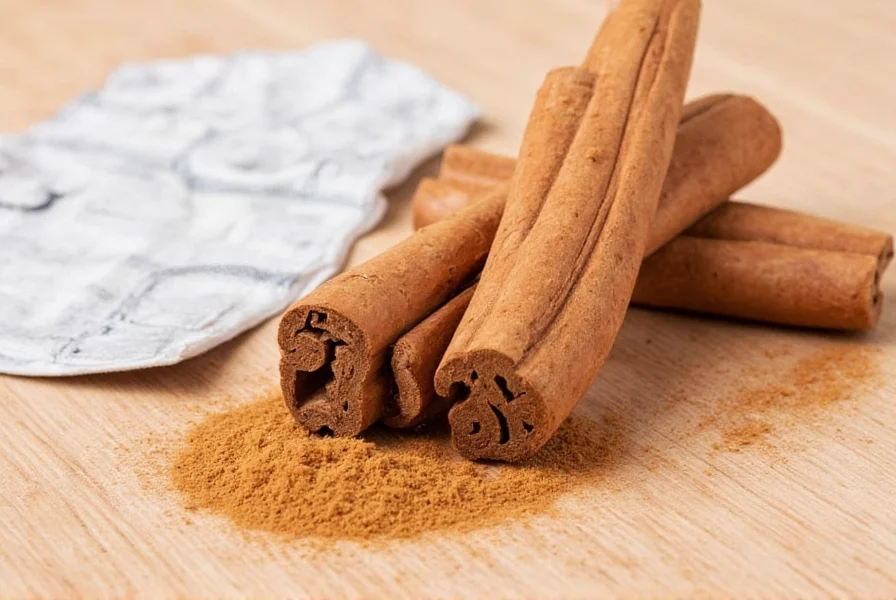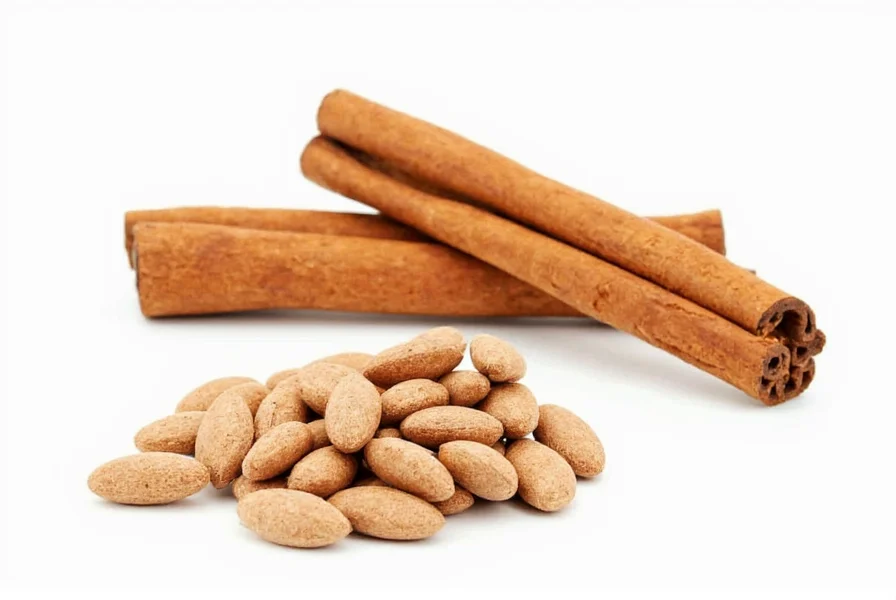When considering ceylon cinnamon tablets as part of your wellness routine, understanding their unique properties compared to other cinnamon varieties is essential. Unlike the more common cassia cinnamon found in most grocery stores, Ceylon cinnamon (Cinnamomum verum) contains only trace amounts of coumarin—a compound that can cause liver damage in high doses. This fundamental difference makes Ceylon cinnamon tablets a preferred option for those seeking regular supplementation.
What Makes Ceylon Cinnamon Different
The primary distinction between Ceylon and cassia cinnamon lies in their chemical composition. While both contain beneficial compounds like cinnamaldehyde, Ceylon cinnamon contains just 0.017g of coumarin per 100g compared to cassia's 6.97g per 100g. This dramatic difference impacts safety profiles significantly. For individuals considering ceylon cinnamon tablets for daily use, this lower coumarin content eliminates concerns about potential liver toxicity associated with long-term cassia consumption.

Evidence-Based Health Benefits
Research suggests several potential benefits of Ceylon cinnamon supplementation, though more human studies are needed to confirm many findings. Current evidence indicates:
| Benefit Area | Research Status | Key Findings |
|---|---|---|
| Blood Sugar Regulation | Multiple human studies | May improve insulin sensitivity; effects typically modest (5-10% reduction in fasting glucose) |
| Antioxidant Properties | In vitro and animal studies | High ORAC value; may reduce oxidative stress markers |
| Anti-inflammatory Effects | Preliminary human trials | Potential reduction in inflammatory markers like CRP |
| Cardiovascular Health | Limited human evidence | Possible modest improvements in cholesterol profiles |
When examining ceylon cinnamon supplement benefits, it's important to note that most substantial effects observed in laboratory settings haven't consistently translated to significant clinical outcomes in human trials. The blood sugar regulation effects, while statistically significant in some studies, typically represent modest improvements rather than dramatic changes.
Safety Profile and Potential Side Effects
Ceylon cinnamon tablets present a favorable safety profile compared to cassia varieties. The primary safety advantage comes from their minimal coumarin content. While cassia cinnamon supplements often require usage limits (typically no more than 1-2 grams daily for short periods), ceylon cinnamon tablets vs cassia options can generally be taken at higher doses for longer durations without coumarin-related concerns.
Reported side effects of Ceylon cinnamon supplementation are typically mild and may include:
- Minor digestive discomfort at high doses
- Rare allergic reactions (primarily in those with cinnamon sensitivity)
- Potential interactions with blood thinners (consult physician)
Unlike cassia, Ceylon cinnamon doesn't pose significant liver toxicity risks at standard supplemental doses. However, individuals with existing liver conditions should still consult healthcare providers before starting any new supplement regimen.
Recommended Dosage Guidelines
Determining the appropriate ceylon cinnamon tablets dosage depends on several factors including the specific product formulation and individual health goals. Most clinical studies showing potential benefits have used doses ranging from 500mg to 2,000mg daily, typically divided into multiple doses.
For general wellness purposes, many experts suggest:
- Starting with 500mg once or twice daily
- Gradually increasing to 1,000-1,500mg daily if well tolerated
- Dividing larger doses throughout the day for better absorption
Those specifically interested in ceylon cinnamon for blood sugar control may benefit from taking their dose with meals, as this timing appears to maximize potential glucose-regulating effects. Always follow product-specific instructions and consult with a healthcare provider before starting supplementation, especially if managing chronic health conditions.

Selecting Quality Supplements
Not all ceylon cinnamon tablets deliver equal quality or potency. When choosing a product, consider these factors:
- Species verification: Look for Cinnamomum verum or Cinnamomum zeylanicum on the label
- Third-party testing: Products verified by NSF, USP, or ConsumerLab provide quality assurance
- Coumarin content: Reputable brands will specify low coumarin levels (ideally undetectable)
- Additive transparency: Avoid products with unnecessary fillers or binders
Be cautious of products simply labeled "cinnamon" without specifying the species, as these often contain cassia. For those concerned about how much coumarin in ceylon cinnamon products, reputable manufacturers will typically provide this information in their supplement facts or upon request.
Realistic Expectations for Supplement Use
While ceylon cinnamon tablets show promise in several health areas, maintaining realistic expectations is crucial. These supplements work best as part of a comprehensive approach to health rather than as standalone solutions. For individuals exploring ceylon cinnamon tablets for diabetes support, these should complement—not replace—standard medical treatments and lifestyle modifications.
The most significant benefits appear to come from consistent, long-term use rather than immediate effects. Most studies showing positive outcomes involved supplementation periods of 8-12 weeks minimum. Patience and consistency are key when incorporating these supplements into your wellness routine.
Frequently Asked Questions
How do ceylon cinnamon tablets differ from regular cinnamon supplements?
Ceylon cinnamon tablets come from Cinnamomum verum and contain significantly lower coumarin levels (about 0.017g per 100g) compared to cassia cinnamon supplements (6.97g per 100g). This makes Ceylon safer for regular, long-term use without concerns about potential liver toxicity associated with high coumarin intake.
Can I take ceylon cinnamon tablets every day?
Yes, ceylon cinnamon tablets are generally considered safe for daily use due to their minimal coumarin content. Most studies use daily doses of 500-2000mg. However, individuals with specific health conditions or taking certain medications should consult their healthcare provider before starting regular supplementation.
What's the best time to take ceylon cinnamon tablets for blood sugar benefits?
For potential blood sugar regulation benefits, taking ceylon cinnamon tablets with meals appears most effective. Many studies showing positive effects administered the supplement just before or with meals, as this timing may help moderate post-meal glucose spikes. Consistent daily use over several weeks is typically needed to observe potential benefits.
Are there any medications that interact with ceylon cinnamon tablets?
Ceylon cinnamon may potentially interact with diabetes medications (increasing hypoglycemia risk) and blood thinners (due to natural coumarin content, though minimal in Ceylon). While interactions are less likely with Ceylon than cassia due to lower coumarin levels, it's advisable to consult your healthcare provider if taking prescription medications before starting supplementation.
How long does it take to see results from ceylon cinnamon tablets?
Most research showing potential benefits from ceylon cinnamon supplementation involved usage periods of 8-12 weeks minimum. Individual responses vary, and some people may not notice significant effects. These supplements work best as part of a comprehensive health approach rather than providing immediate dramatic results. Consistency in taking the recommended dosage is key for potential benefits.











 浙公网安备
33010002000092号
浙公网安备
33010002000092号 浙B2-20120091-4
浙B2-20120091-4